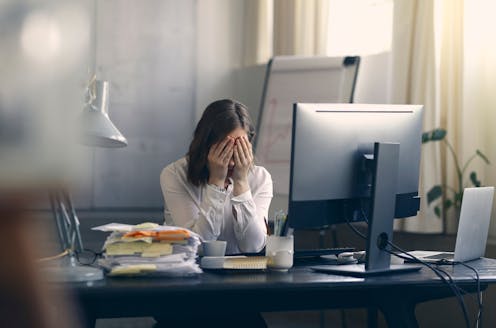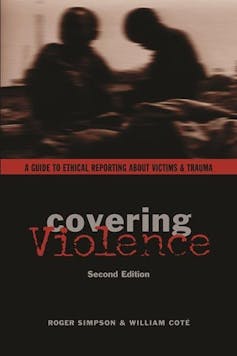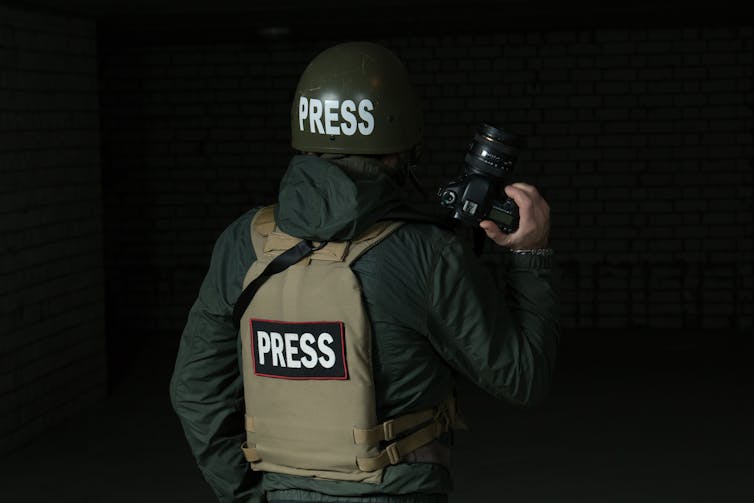
It never really dawned on me how vulnerable journalists were to trauma until I took a job as an investigative reporter. I spent most of 2021 and 2022 verifying, analyzing and writing stories about murder-suicides.
Every morning, I would make myself a cup of coffee in my New York City apartment, then sit down at my desk to pore over cases of murder-suicides — a total of 1,500 a year in the United States at the time.
I was consumed by my work. I was going through every news story about a specific murder-suicide, checking the accuracy of facts like the spelling of names, ages of the perpetrators and their victims and details of where the events occurred and how the murder-suicides were carried out.
In one case, I spent a month working out the number of children killed by their parents in various parts of the country. When relatives I hadn’t seen in four years came to visit, I spent most of their trip elsewhere, interviewing with experts on gun and domestic violence.
Some stories were gruesome and graphic, like the case of José Valdivia in California who killed his ex-wife and children the day after she filed for a restraining order before turning the weapon on himself. That was one which hit me especially hard; I was living alone, and each time I would see a child with their parent, I would try to figure out what could possibly trigger such an awful event.

Trying to understand why a parent would take the life of their own child was important. But I felt as if I was trying to justify these heinous acts, and I didn’t want to make them acceptable.
Journalists are trained to be objective and neutral, so we’re able to report on events, no matter how disturbing, without emotional involvement.
But staying detached was impossible.
Journalism stress
Stress has detrimental effects on the body. I had frequent migraines and I couldn’t sleep. I couldn’t silence my thoughts and quiet the chaos in my head. I began feeling claustrophobic in unfamiliar surroundings, and jumped at sudden loud noises. I felt unsafe and anxious.
My feelings made no sense to me because I had neither witnessed a crime nor reported on one directly, and yet I was deeply affected, physically and emotionally.
My experience was just one example among the soaring incidence of stress among journalists. Covering wars, diseases and deaths is stressful, and this is compounded by increasingly demanding workloads and uncertain job security.
Experienced trauma
The Canadian Journalism Forum on Violence and Trauma looked at the mental health of more than 1,200 journalists in late 2021. More than two-thirds suffered from anxiety, 46 per cent reported depression, and 15 per cent said they had experienced post-traumatic stress disorder (PTSD) over the past four years.
Anna Mortimer is an ex-journalist who founded The Mind Field, a group that provides therapy to journalists and humanitarian workers remotely around the world.
“A journalist may not identify the problem as quickly and might feel more ashamed displaying it than someone who was a bystander for other reasons,” Mortimer says. “I think journalists expect to be less vulnerable, less affected, but that is not the case. Just because you are a witness and not a participant, it doesn’t mean you will not carry it with you forever.”
The health issues reported to The Mind Field therapists include insomnia, nightmares, flashbacks, general anxiety and more obviously physical symptoms like headaches or gastric problems. Many journalists also turn to coping strategies like excessive drinking or a reliance on drugs.
Vicarious exposure
The clinical definition of trauma has evolved, as the events that cause it have become more complex. Research shows that journalists can be “adversely affected by emotional stressors and that most journalists are exposed to potentially traumatic events at least once in their career.”
“If you are exposed to visually troubling images in your line of work, that’s now considered sufficient stress to cause post-traumatic stress disorder”, says Anthony Feinstein, professor of psychiatry at the University of Toronto and a leading expert on the trauma faced by journalists.

He adds: “You are not directly being threatened, but the imagery in front of you can be very disturbing. So, you still witness it vicariously.”
Some factors can heighten a journalist’s vulnerability and increase their risk for developing PTSD. In a 2017 study, researchers working with journalists in Europe found the risk soars if a journalist is physically or verbally attacked or injured while on the job.
Unexplained workplace changes, inconsistent leadership styles and conflicts with supervisors exacerbate the problem. What’s more, journalists who try to shield their emotions through coping mechanisms like denial, behavioural disengagement and self-distraction have reported more severe PTSD symptoms.
The problem is exacerbated by journalism’s rapidly expanding boundaries. Journalists now frequently work with user-generated content, including violent images and video material transmitted to newsrooms from sources on the ground. Frequent exposure to disturbing content — like from the war in Ukraine or political unrest in the U.S. — presents new challenges for journalists, Feinstein says.
“The majority of journalists will never develop PTSD or depression,” he says. “However, the minority who do is quite a significant one and quite higher than what you would see in the general population. And that point is very important.”
Music has been my greatest comfort and something I turn to every day. Opening up to my friends and family about my mental state, even when it’s uncomfortable, has helped me immensely.
Norma Hilton does not work for, consult, own shares in or receive funding from any company or organisation that would benefit from this article, and has disclosed no relevant affiliations beyond their academic appointment.
This article was originally published on The Conversation. Read the original article.







